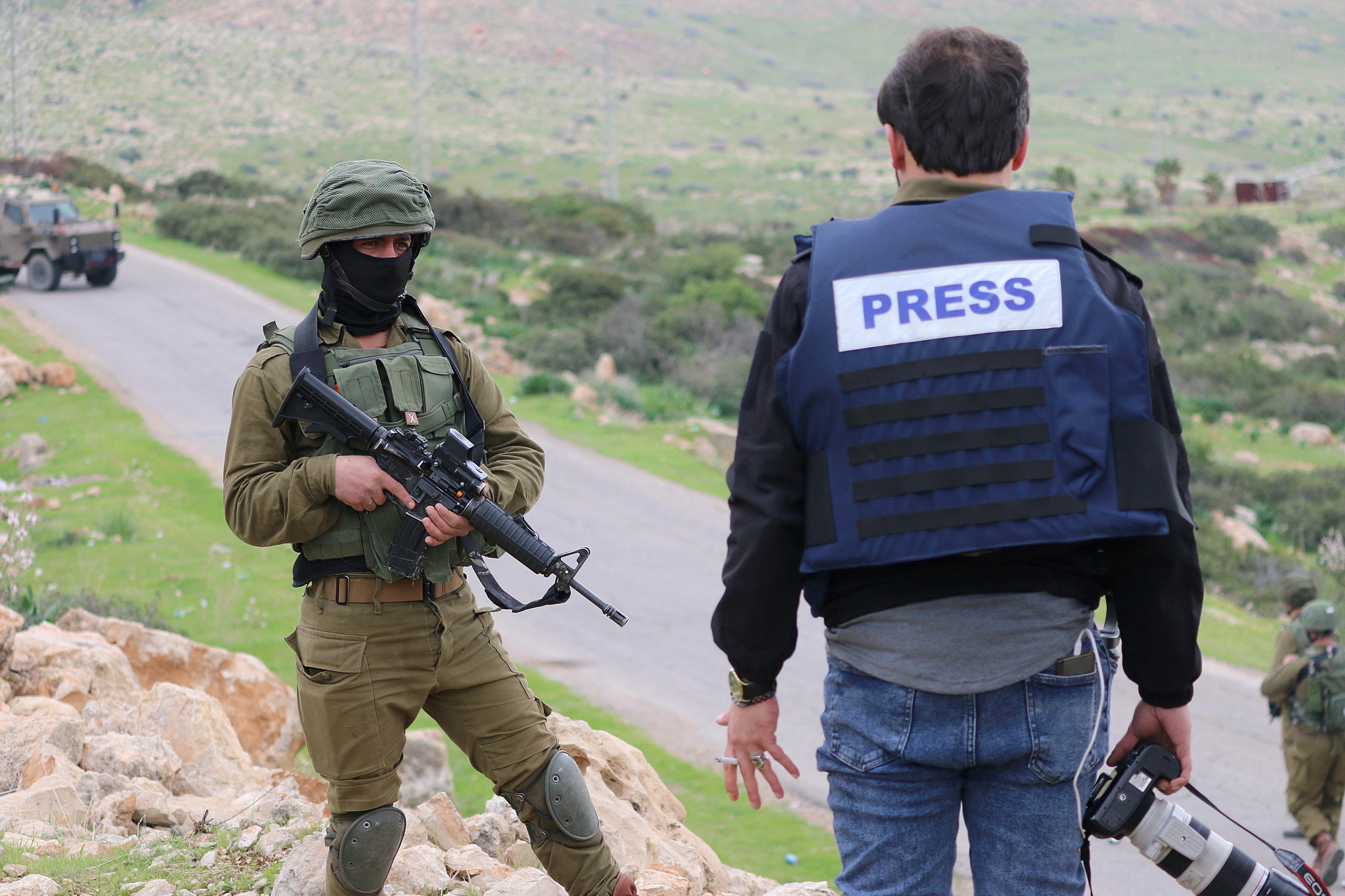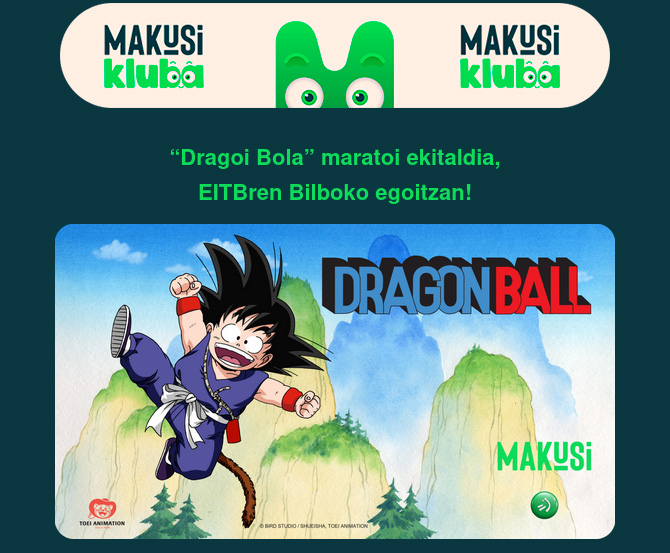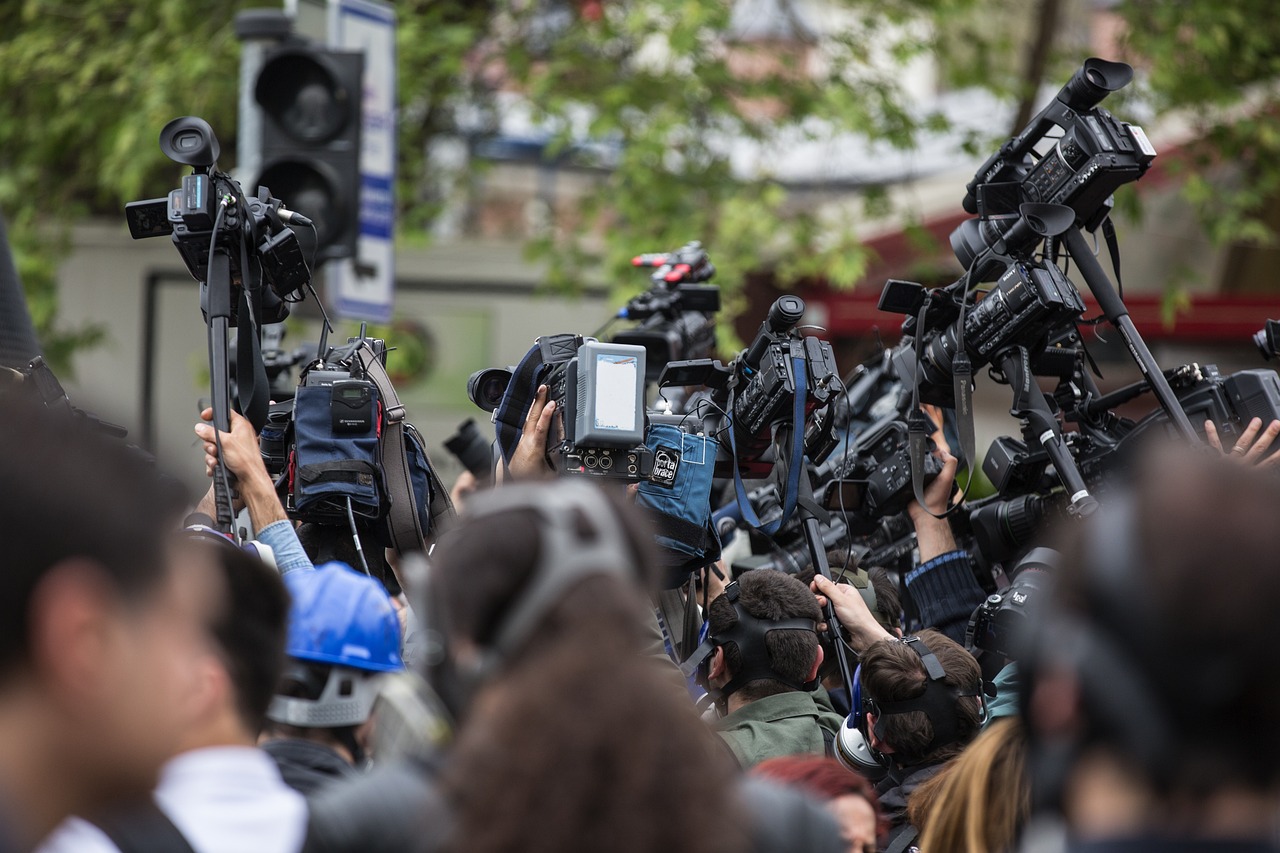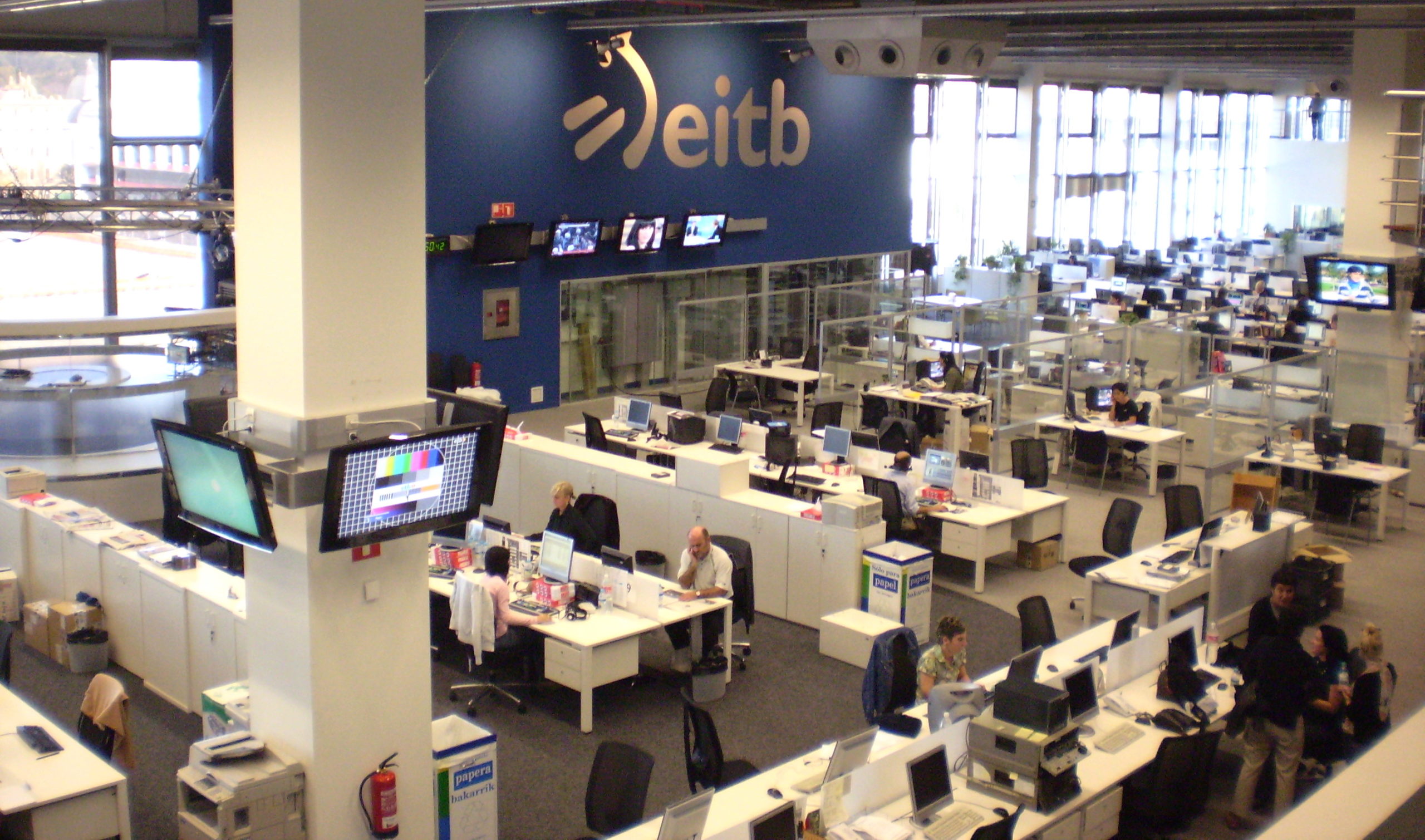"Where I am, propaganda is stronger than information."
- The truth is the first victim of any war. Is the journalist going to face the autopsy of truth or bury the truth? Here's a good exercise in archaeology.
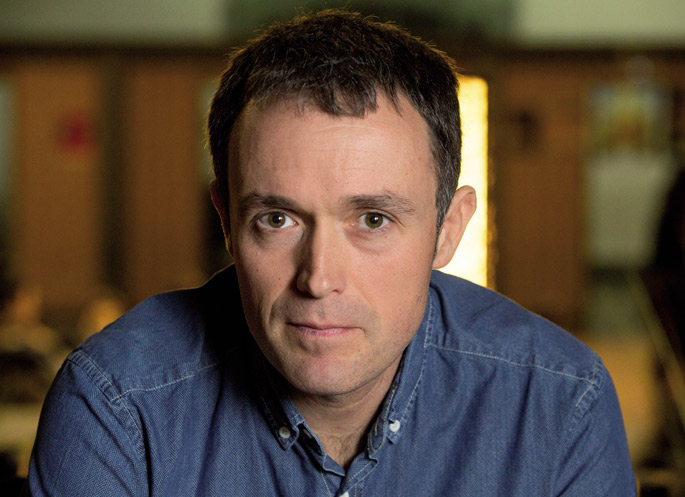
War journalist, conflict journalist, international journalist ...
Journalist. Leave me labels and myths. As soon as I met the first dinosaur, I decided I didn't want to be like him. We are journalists, not heroes. I do not know of any journalist who has been forced to go in front of him. I had a fixed position in El Diario Vasco, but at that time, the only option to make a work trip was to qualify for the Real Sociedad Champions. So as I was building a structure, I quit my permanent job and started freelance. In war, you see things that don't go through your head in ordinary life. In the last war in Gaza, when I was seeing bombings from the roof of the hotel, “Is it possible? ! I wondered. It was Star Wars. It's no coincidence that the planes for my destinations become empty and full. In those cases it's inevitable that you think you're getting into the wolf's mouth. But our job is addiction. When you try it, it grabs you.
While you were Mikel Ayestaran you took your brand.
It was clear from the beginning that “Mikel Ayestaran journalist” had to be a product. From the beginning I have tried to boost my brand. The time of the contract that guarantees you loyalty to a means of communication is over. We are in the age of self-fidelity. Now people don't follow a media outlet, they follow people. “I believe that or not,” there is nothing else. I've always been a specialist. That is why my credibility and my specialty are my axes. I want people to believe me, that when I open my mouth, I should investigate the information, that it should pass through the sieve and think that I have cooked it. But the Middle East is very complex. I've been a freelance for ten years, I'm a 10-year-old who learns every day, and I also want to convey that.
I used to say: “It was labels and myths.” Is the Middle East not a label?
I do not know why the Middle East is so far away to us. I do not know why we collect such different realities on a single label. The passing of the years has allowed me not to lose sight. Because it's much harder to explain how little you know than to talk as if you knew everything. Let's not fool ourselves, here people don't talk about Sunias, Truses or Shiites, talk about Real. As if it were not enough, the West looks at the world from the top down, always above the shoulder. We have exported democracy, we have exported the values of good, we ... Although we have developed minimal empathy for the tragedies in the Middle East, it always seems to us that this cannot happen to us, that we are safe. We do not know how to listen. Many journalists go to conflict centers to tell them the story that they came up with on the couch in their house. They don't care what happens there, what you find there. The same is true of politics. What are our authorities doing? To blame others, to end the mission and to move towards the neighbouring country.
Who moves the threads of breaking news?
The agenda is very curious. Some conflicts are always on the front line, others are always in the shadow. As far as my passports from 2006 to 2011 are concerned, I was travelling tirelessly in Pakistan, Afghanistan, Iraq and Iran. Now Afghanistan and Pakistan are no longer mentioned, everything is Syria. But in the newspapers of ten years ago, Syria did not exist! Who and how does that agenda organize? I have no clues, but I live as a prisoner of that agenda. It is clear that the fact that the interests of the West are at stake brings added value to the conflict. In the case of Syria, we are interested in it because there is an armed group that attacks Europe. When have we worried about refugees? They were at the door of the house. It is enough for the United States or NATO to send troops to make that conflict worthy of headlines. There you see that Israel is one more state in the United States. The fact that the security of Israel is at stake is news, an attack on the Jews is news. That's why, since 2001, anti-Muslim news has taken a heavy toll. Have you heard any positive news about Muslims? All horror, every attack!... Ask yourself why you associate Islam. It's an incredible culture, an amazing religion, amazing countries -- but it's Islamophobia that dominates. Meanwhile, where are the South American wars that filled newspapers in the years 1970-1980? Since when haven't you read news about Nicaragua? Why? I don't know.
Breaking news where a wave of journalists takes place.
It's a circus that can become pathetic. It serves journalists to add another war to the resume and make us believe that we're the best, but what does that help people there? The problem is that it has ended in an alternative way. If in Gaza, when you start the bombing, you're not in any of the three or four hotels, you get a bomb. In Kabul, if you say you want to live far away from the people of the United Nations, you will not survive. Fifteen years ago, Bush’s famous anti-terrorist war to make us live safer has made the world much more complicated and dangerous. A few years ago, in Afghanistan, I was cycling. To see who dares now. So if the reality you see with your eyes is always limited, think about wars. Lobbies ate our ears, walk two streets, and we count the sectarian war in Iraq. If the TV war journalist has to follow the satellite in order to be able to do direct, how is he going to give up the official track? There are no miracles. The difference between reporters returning to the conflict zone and those not returning is therefore evident. Whether or not I'm in conflict, I'm going to Gaza every month. Time allows you to track and track your perspective. However, since the beginning of the crisis there is no continuity, there is only breaking news. It's sold by wars and natural disasters, not by its possessions.
What is information in war?
That's the hardest thing, to distinguish what's information from what's not. Your feelings, your experiences, what you've been told, what you've seen, religion, macropolitics, lobbies... Getting pure information is extremely difficult. Where I am, propaganda is stronger than information. For example, lobbies exert great pressure. In Israel, your work is on a daily basis via social media and you have no objection to contacting the media directly. If you see on Twitter or Facebook that you have a large number of followers, then you start walking on the wood right away. For the time being, I carry this pressure well. I feel protected and, above all, I know that I have not sold myself. It's a great peace of mind to know that you're not supporting one side or the other.
Have you ever been afraid?
How wasn't it going to be scary? I am not particularly cowardly, but it is frightened in the midst of a bombing. When I planned the trip, I chose the hotel and I measured the danger somewhere, but when I make myself available to others I leave with fear. Every time I'm in the hands of Americans or Spaniards, I think about anything. When I'm in an armored car, at the center of the runway, a 20-year-old boy ... I don't trust. When you're 40 years old and two kids, you see things differently. For example, I got very touched by the last war in Gaza. They killed the childless kids. I went to the hospital and every day I saw the children shattered: arms there, legs there, tents... Seeing that every day makes you desolate, you cry again and again. Everyone has their tricks so they don't get rid of what they see and go crazy inside. It gets over, or that's what I want to think about, but I have very knowledgeable friends. I know it affects me, but I also know it's part of my work, that I've prepared myself for that kind of journalism, and if I can't cope with it, it's better to devote myself to sport.
A word that's part of your work lately: refugees.
Since Erdogan lost the elections, thousands of refugees had appeared in Turkey until the next elections were held. Turkey ' s borders opened differently from what had been opened in the last ten years, until then a journey of $15,000 and three months had become a week and $3,000. Why? No idea. Why did Turkey open the border? Why did the Mafia cut prices? Why did Germany welcome the refugees at first and then not? Imagine how many experts and analysts there are in the world, no one predicted that they existed. When I was called from Euskal Telebista to go to Macedonia, I just put it on the map. As for how it behaves with the refugees, I would say that something similar happens to Europe with Syria. He doesn't know what's going on there, where the fronts are moving, what's at stake, what side it should be on... Europe still does not understand that this is not a summer problem. They're playing with the Syrians, here and there, because if there's a big refugee tragedy, it's bigger than the exiles. Like they did with Iraq, the country is shattering a thousand pieces.
Other name at boiling: Islamic State.
When I was in Baghdad, the translator approached me alarmed, “Mosul has fallen! Mosul falls!” "In whose hands? ", I asked him, I incredulously. “Under a group called the Islamist State.” We just got crazy looking at TV. In the newspapers of two years ago, there was no Islamic State, there was no Emir Pueblo, and now there is no more. Once again, neither analysts nor experts had foreseen such a thing. No one told us that a group could create an Emir People, that there were serious threats. Nobody. However, they defeated the Iraqi Army from morning to night, placed Emir standing in a cabel and now spread panic at the house of their enemies, in order to attract the enemy to the Middle East and play the game there. They're not crazy, they're not four mucous kids. They're strong in the army, they have the means and they know very well what they do. What does the West do about that? Accepting security measures that would otherwise be unacceptable at home and sending six planes to bomb Syria. When will you understand that you do not fix anything like that? I still remember that when I started going to Afghanistan, that wasn't a war, it was an asymmetrical conflict that was repeated to us by Chacón's press chief. How wouldn't everything get worse? It was a disaster. Our rulers don't care about Iraq or Syria, they just think about the upcoming elections.
Do you have a Middle East solution in your head?
Justice, there's no more. The conflict between Israel and Palestine is the first of the problems to be solved. The standards and guidelines of international organizations must be implemented by Israel. It is a lie that the solution is negotiation. It is in our hands that Israel respects the law. Why is the law of the West imposed in many countries and not in Israel? If Muslims don't see justice, all of our sermons are useless. It is only with clean hands that credibility is achieved. Because failure to comply with the laws themselves is cancer, a cancer that gets worse by intermittent metastases. If you attack the Afghan Taliban to defeat them and put the cruellest terrorists of the civil war in their place, how will you create a sound basis for building anything? It's useless, the strategy of the West is to tear all countries apart: divide them, build walls and seek out friends and balances that respond to the interests of the moment. There is no long-term strategy or strong leader.
1975, Beasain. Kazetaria. 2005ean El Diario Vasco-ko erredakzioko lana utzi eta freelance moduan hasi zen Ekialde Hurbileko gatazken berri bertatik ematen. EiTB eta Vocentorekin iraunkorki kolaboratzen du, egun. Jerusalemen bizi da. 2015eko Euskal kazetaritza saria jaso berri du. Informazio gehiago www.mikelayestaran.com-en.
“Segurtasun protokoloek txoferrez, itzultzailez eta ohiturez aldatzeko aholkatzen dute. Nire protokoloak, ordea, Azpeitiko protokoloak dira. Beti jatetxe berdinetara joaten naiz, itzultzaileekin harreman profesionalaz haratagoko adiskidetasuna dut... Lanerako urrea balio du horrek, eta etxetik kanpo hainbeste denbora pasata, etxean bezala sentitzen laguntzen dit”.
Vietnam, February 7, 1965. The U.S. Air Force first used napalma against the civilian population. It was not the first time that gelatinous gasoline was used. It began to be launched with bombs during World War II and, in Vietnam itself, it was used during the Indochina War in... [+]
Hirietako egunerokoa interesatzen zaio Sarah Babiker kazetariari; ez, ordea, postaletako irudia, baizik eta auzoetan, parkeetan, eskoletan, garatzen den bizitza; bertan dabilen jendea. Lurralde horretan kokatzen dira bere artikuluak, baita iaz argitaratu zituen bi lanak ere... [+]
The other day, as I was walking through the famous television series The Wire, there came a scene that reminded me of despair. There, the management of the newspaper The Baltimore Sun brought together the workers and alerted them to the changes that are coming, i.e. redundancies... [+]












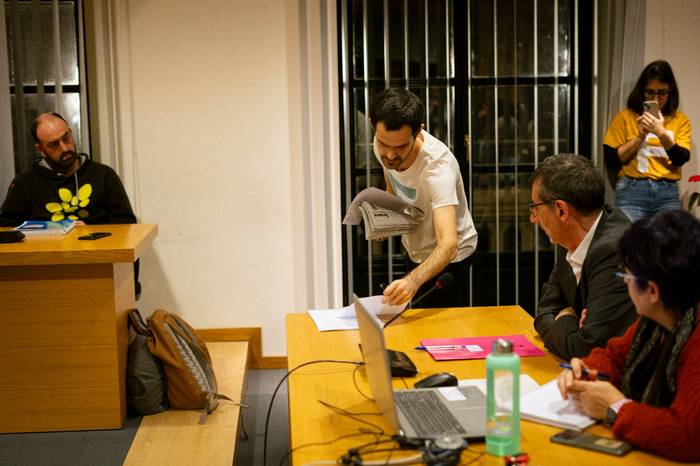


.jpg)

